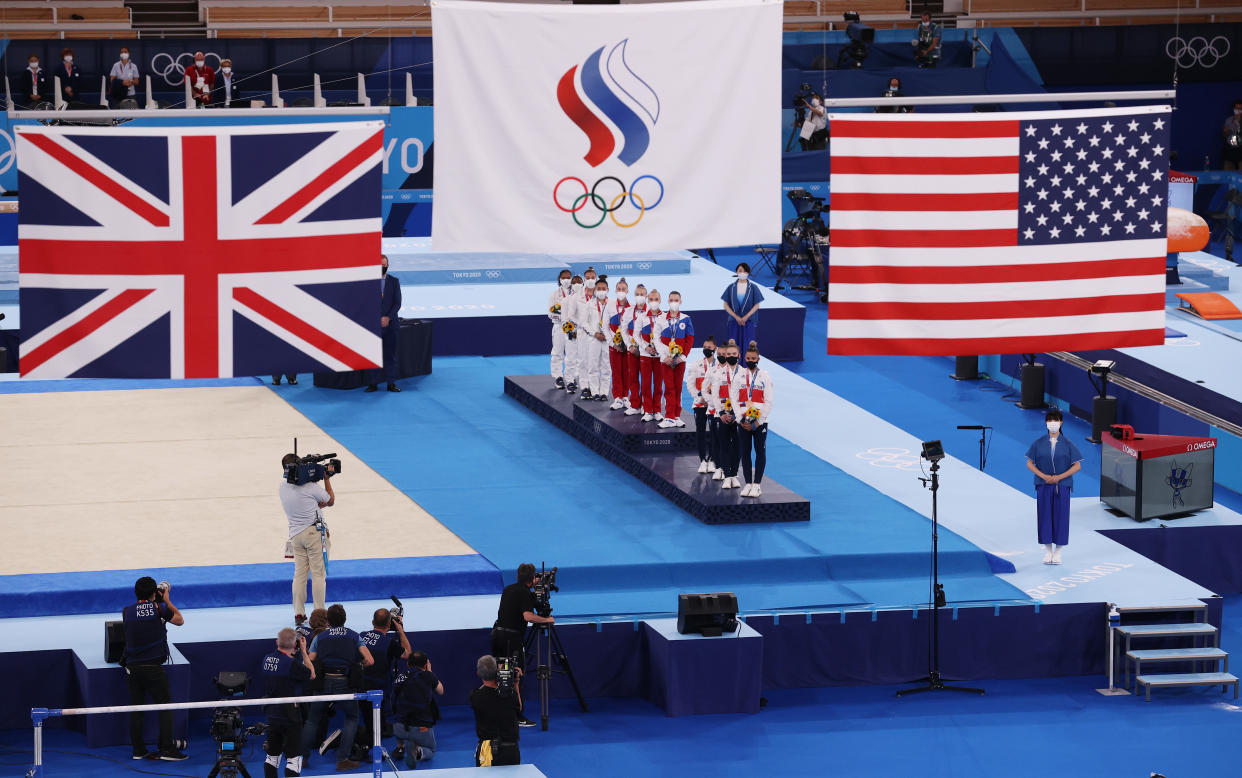2024 Paris Olympics: Where are the Russians?
PARIS — After winning gold in 2012 and 2016, the United States women’s gymnastics team took silver in the team competition at the 2020 Tokyo Olympics. It’s a result that remains front of mind for a group that is returning four of five members at this year’s Summer Games in Paris.
“We really want a team gold,” Suni Lee said. “This is the same team, basically, as 2020, so it’s kind of like a redemption tour.”
The Americans are the favorites to win that gold, in part because of the talent and depth of their team and in part because the team that beat them in Tokyo won’t be in Paris.
Russia.
For the fourth consecutive Olympics — two summer, two winter — Russia is officially banned from participation by the International Olympic Committee. It’s just this time, the penalty has actual teeth.
Just 15 Russian athletes — none of them artistic gymnasts — are expected to compete in these Games, a precipitous drop from the 335 in Tokyo.
The IOC has sanctioned Russia since 2018 for operating a sophisticated state-run doping operation during the 2014 Winter Games in Sochi. However, Russian athletes were able to compete under ostensibly the same circumstances — the “Russian Olympic Committee,” for example, in Tokyo.
It was a distinction with little difference. In Tokyo, the “ROC” won 71 medals, including 20 golds. It was good enough for the third-most total medals and fifth-most golds.
In response to Russia’s 2022 invasion of Ukraine, however, the IOC required Russian and Belarusian athletes to apply to compete not for any national organization, but as so-called “Individual Neutral Athletes.” Just 16 Belarusians are expected at the Games.
To be approved, they were required to prove they are not connected to the Russian armed forces and do not support the aggression in Ukraine. If admitted they will compete under a neutral banner and are barred from wearing Russian colors in competition. Should they win gold, they would receive their medal while a wordless anthem is played as the “Individual Neutral Athletes” flag is raised.
They are essentially men and women without a country.

Russian gymnasts declined, as a group, to even apply. Many other athletes who did and were approved, chose not to come.
"We do not accept the unsportsmanlike selection principle,” the Russian Wrestling Federation said in announcing it was turning down 16 invitations to compete. Meanwhile, when just four of 17 judokas were approved, the federation also collectively chose to stay home.
This leaves a gaping hole in competition across the Games, the most significant since the political boycotts of the 1980 and 1984 Summer Olympics.
Russia, along with the United States, China and Great Britain are mainstay powers. Its athletes, competing under some banner, have finished top four in total medals in every Summer Olympics since choosing to stay home from the 1984 Games in Los Angeles.
Its wrestlers, for example, won eight medals in Tokyo, including four golds, but now won’t be there. It’s the same for athletics, artistic swimming, taekwondo, fencing, boxing, swimming and shooting — all sports Russians won gold in 2020. Then there is artistic gymnastics, where the Russians won eight combined medals, including both the men and women taking team gold.
“The Russians have always been a contender for a medal, both as a team and as individuals,” said Samantha Peszek, a 2008 silver medalist for the Americans and NBC’s top gymnastics analyst during these Games. “They always push the level of difficulty; they have a history of competing at a high level while at the games.”
Russia has denounced the punishment as racist against the Russian people. It plans to hold its own “mini-Olympics” this year. It has set aside some $2 million to compensate athletes who missed out on these Games.
In the meantime, Paris will go on without them. In gymnastics, Peszek cautioned that while not having Russia leaves “one less threat” to American domination, that isn’t how the Americans approach the competition.
The “team” event is fun and competitive, but it’s really an individual sport. Athletes focus on doing what they can do and only what they can do.
“It’s different from other sports such as soccer or basketball, where there is offense/defense,” Peszek said. “The Americans have more difficulty [in their routines] than any other country. So if they do their job, good things will happen. It shouldn’t be a factor.”
Essentially, if Simone Biles, Suni Lee, Jade Carey, Jordan Chiles and newcomer Hezly Rivera perform to their potential, no one was likely to beat them anyway.
“This is definitely our redemption tour,” Biles said. “I feel like we all have more to give.”
And one fewer team to beat. Same as everyone else in Paris


